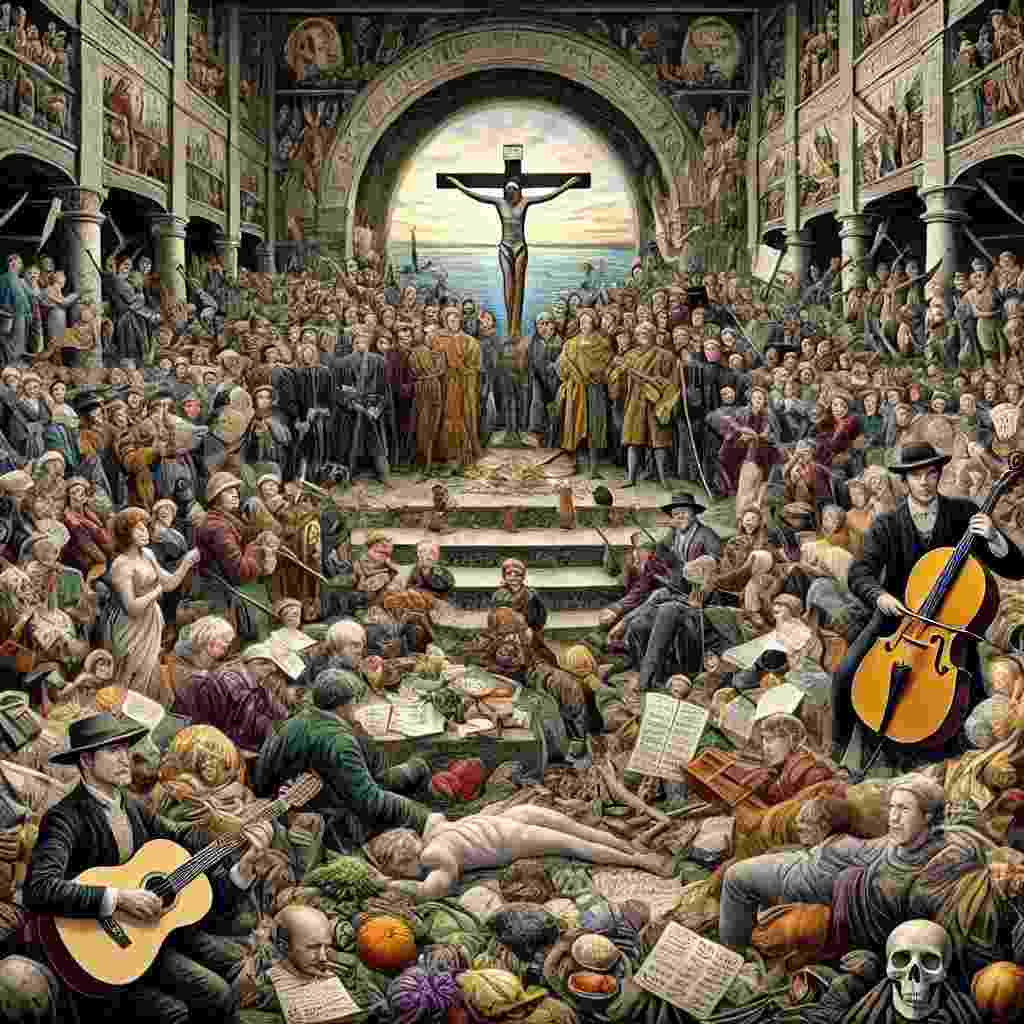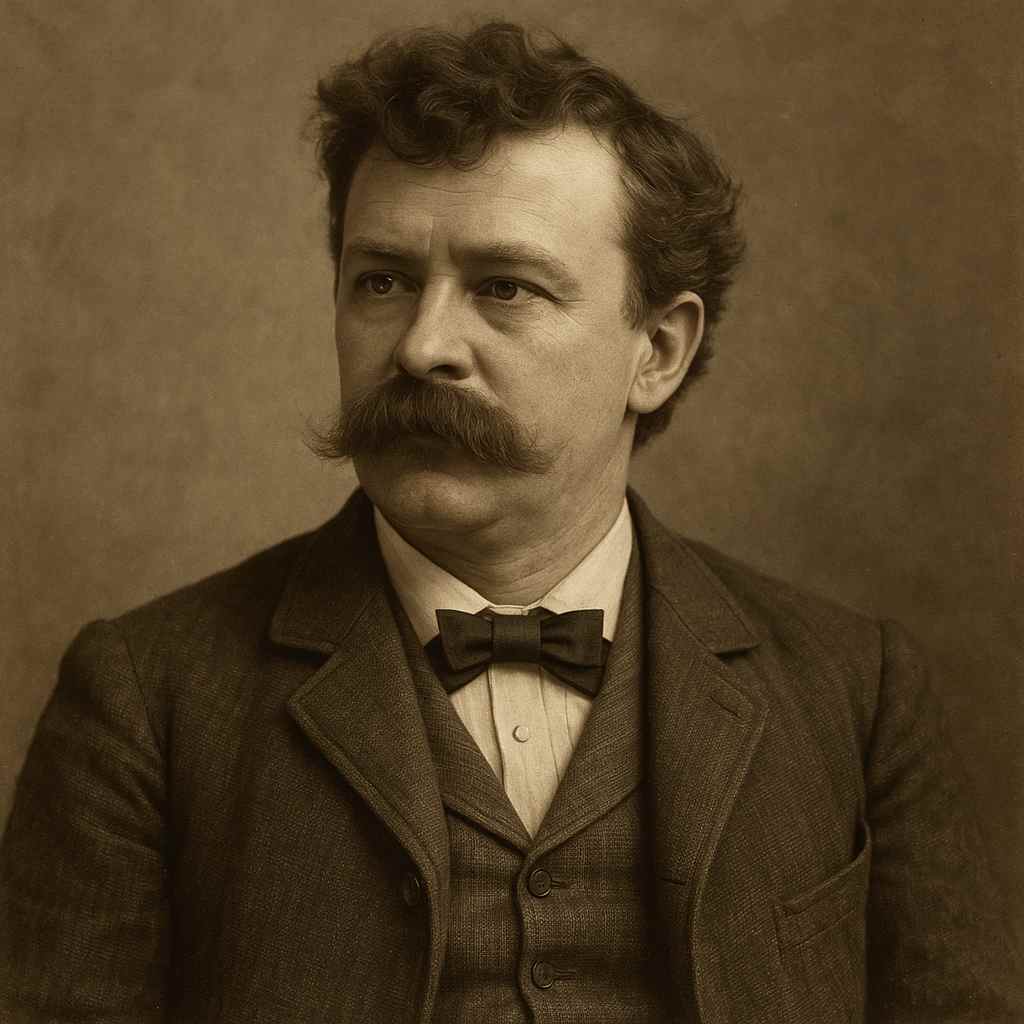If I Should Die
Ben King
1857 to 1894

If I should die to-night
And you should come to my cold corpse and say,
Weeping and heartsick o'er my lifeless clay—
If I should die to-night,
And you should come in deepest grief and woe—
And say: "Here's that ten dollars that I owe,"
I might arise in my large white cravat
And say, "What's that?"
If I should die to-night
And you should come to my cold corpse and kneel,
Clasping my bier to show the grief you feel,
I say, if I should die to-night
And you should come to me, and there and then
Just even hint 'bout payin' me that ten,
I might arise the while,
But I'd drop dead again.
Ben King's If I Should Die
Ben King's poem If I Should Die is a humorous yet poignant exploration of human relationships and the trivialities that often outlast even the gravest moments of life. By juxtaposing the solemn occasion of death with a mundane financial debt, King offers a wry commentary on social priorities and the ironies of human interactions. Written in a straightforward and accessible style, the poem employs irony, situational humor, and an engaging tone to reflect on how obligations—whether monetary or emotional—linger even in death.
Themes and Subject Matter
The central theme of the poem revolves around mortality and human obligations, particularly the trivialities that persist in the face of death. King contrasts the solemnity of death with the absurdity of mundane concerns, such as the repayment of a debt. This juxtaposition underscores the human tendency to blend seriousness with banality, suggesting that even death cannot escape the petty obligations that shape everyday life.
A secondary theme is ironic detachment, as the speaker envisions their own death with an air of humor and disbelief. By imagining the creditor addressing their corpse, King highlights the absurd lengths people might go to fulfill obligations at the least appropriate times, demonstrating both the persistence of societal norms and their inherent ridiculousness.
Tone and Mood
The tone of the poem is distinctly ironic and playful, despite its ostensibly morbid subject. The speaker reflects on their own death with a sardonic wit, envisioning scenarios where financial debts overshadow the emotional gravity of their passing. The mood, while humorous, also carries a subtle undertone of cynicism, as the poem suggests that practical concerns—represented by the repayment of a mere ten dollars—often take precedence over genuine emotional expression.
Structure and Form
The poem is written in rhymed couplets, with a regular rhythmic cadence that lends itself to a conversational and anecdotal style. The use of repetition, particularly the phrase "If I should die to-night," creates a refrain-like structure that emphasizes the hypothetical scenarios the speaker imagines. This repetition reinforces the humor of the poem, as each new scenario builds upon the absurd premise with escalating irony.
Analysis of Literary Devices
-
Irony:
- The poem’s central irony lies in the contrast between the gravity of death and the triviality of financial debts. For instance, the line:
"And say: 'Here's that ten dollars that I owe,'"
is absurd in its prioritization of monetary repayment over mourning, subverting the reader's expectations of a solemn deathbed scene.
- The poem’s central irony lies in the contrast between the gravity of death and the triviality of financial debts. For instance, the line:
-
Hyperbole:
- The speaker imagines their corpse reacting to the repayment of a debt by rising and speaking:
"I might arise in my large white cravat / And say, 'What's that?'"
This exaggeration amplifies the humor and highlights the ridiculousness of the situation.
- The speaker imagines their corpse reacting to the repayment of a debt by rising and speaking:
-
Repetition:
- The recurring phrase "If I should die to-night" establishes the hypothetical framework of the poem while also drawing attention to the speaker’s detached and whimsical perspective on their mortality.
-
Tone of Mock Solemnity:
- King adopts a faux-serious tone to describe scenarios that are, at their core, absurd. For instance, the imagery of the speaker rising from the dead in their cravat humorously juxtaposes high formality with comedic irreverence.
-
Imagery and Visual Detail:
- The poem includes vivid descriptions, such as "my cold corpse" and "clasping my bier," that evoke traditional death rituals. However, these images are undercut by the humor of the speaker’s imagined reactions, blending solemnity with levity.
Interpretation
Ben King’s If I Should Die offers a clever critique of human priorities, using humor as a lens to explore the interplay between life’s weighty moments and its trivial obligations. The poem invites readers to reflect on how societal norms and personal debts persist even in death, exposing the absurdities of our values and behaviors. Beneath the humor lies a subtle critique of human interactions, suggesting that our focus on petty concerns often overshadows deeper emotional connections.
Conclusion
If I Should Die is a masterful example of humorous poetry that engages with profound themes in a lighthearted yet thought-provoking manner. King’s use of irony, repetition, and vivid imagery creates a memorable and entertaining exploration of death, obligation, and human relationships. While the poem may initially seem like a humorous anecdote, its underlying commentary on societal priorities ensures its lasting resonance with readers.
This text was generated by AI and is for reference only. Learn more
Want to join the discussion? Reopen or create a unique username to comment. No personal details required!



Comments
No comments yet. Be the first to comment!